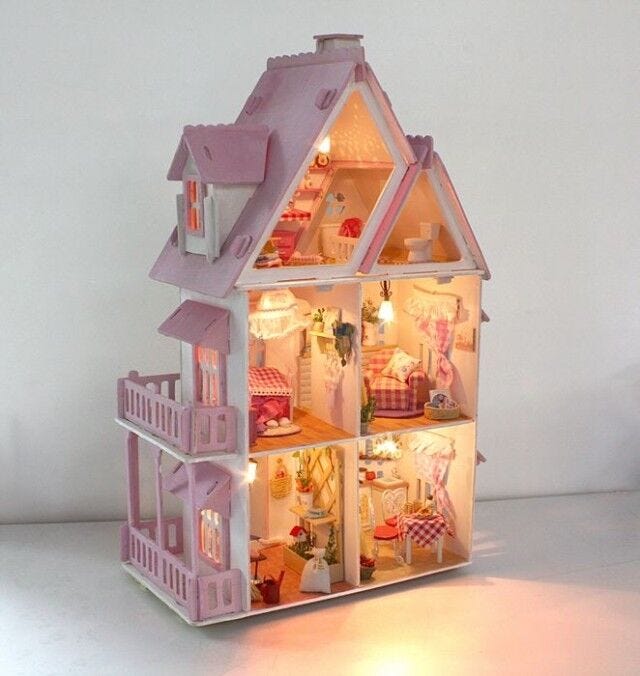This post is a chapter of the book It Ain’t Gonna Lick Itself: Housekeeping In Spite Of It All) by Hanne Blank Boyd.
Click here for the full table of contents.
When we met, my spouse and I were neither young nor inexperienced. We were both responsible, resourceful middle-aged human beings who had a combined 60 or so years of experience at running our own households, and we shared a reasonably similar standard in terms of what we expected our shared household to be like.
But we didn’t necessarily do things the same way. We still don’t, to be honest. I believe I’ve mentioned that he’s better than I am at loading the dishwasher, while I remain skeptical of his refusal to use a countertop dish drying rack.
He has a profound aromatherapy relationship with the smell of Tide laundry detergent and wants all laundry to be tumble-dried into a state of fluffy softness. I am agnostic about whether clean laundry should smell ike anything at all (except that now I associate the smell of Tide laundry detergent with someone I love) and am a total sucker for the rough, slightly stiff texture of line-dried clothing and sheets and especially towels.

He has a higher tolerance for the pet-hair tumbleweeds that begin to drift across our floors after a few days without sweeping than I do, but I have a higher tolerance for hanging clothes that can be worn again over the back of a chair in the corner of the bedroom if you’re going to wear them again in a day or so. We both like things to be relatively orderly, though, and we both vastly prefer it when we are able to open up a closet or a cupboard and lay hands on what we need in a relatively direct fashion.
We almost had a fight, though, the day he wandered in and started asking me questions about where and how I’d put something away in a cupboard and I blithely explained that I’d put the thing where there was space.
“But that’s not where it goes,” he protested. “It isn’t in its bed.”
I’m pretty sure I looked at him like I thought he might be a little touched, so he elaborated.
“Everything has a house, right? A place where it lives,” he began, opening the cupboard in question.
I agreed. Yes, of course, everything has a place where it lives. Clean kitchen towels go in the linen closet, canned goods go in the pantry, spare rolls of toilet paper go under the bathroom sink, et cetera.
“Well, everything has a bed, too. Everything goes home to its house, and in its house it goes in its bed.” He illustrated this by taking the thing I’d put into an empty space -- I can’t remember what it actually was so let’s just say it was a box of pasta -- and putting it in a specific spot. “Now it’s in its house and in its bed and we know where to look for it.”

I acted like this was fine. Friends, it was not fine. I had been doing just dandy for decades more or less keeping things of a particular type together within general parameters. I knew where things were, more or less, and there was some logic behind it and I could locate things when I needed them. How dare he insinuate that my method was not sufficient! Did he seriously think I was… incompetent at this particular bit of housekeeping?
Friends, I was affronted. I was affronted and offended. I was also just the tiniest bit butthurt. “Butthurt,” which I am delighted to tell you is now included in the Cambridge English Dictionary, means to be offended or upset, especially in a way that is silly or unreasonable. Which I was, because, you know, he wasn’t wrong, damn it.
Keep reading with a 7-day free trial
Subscribe to Reasons Not to Quit to keep reading this post and get 7 days of free access to the full post archives.




